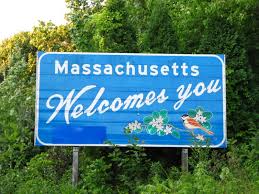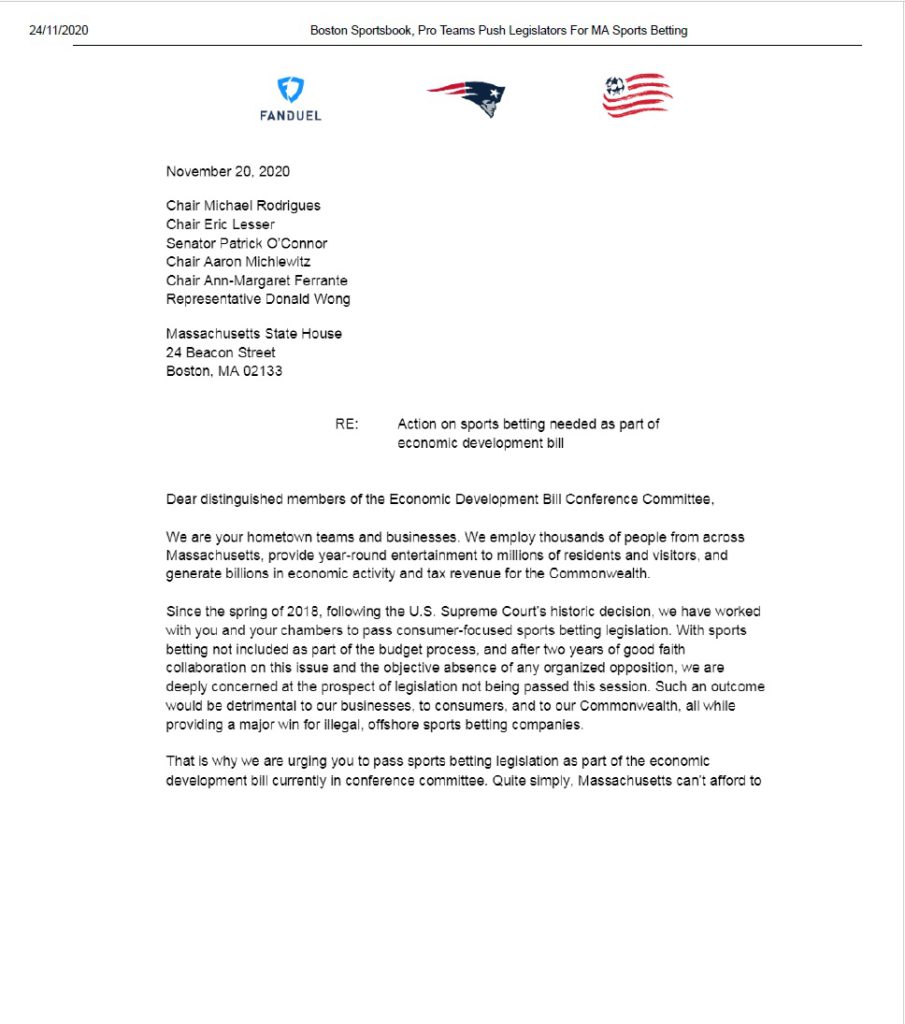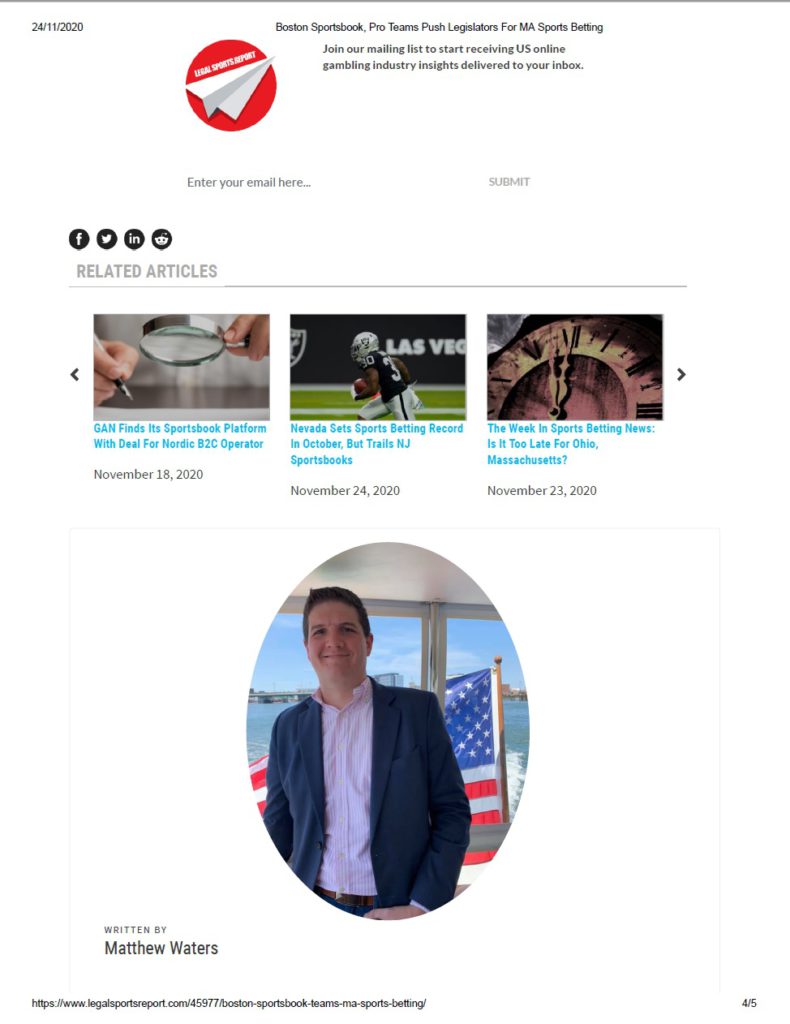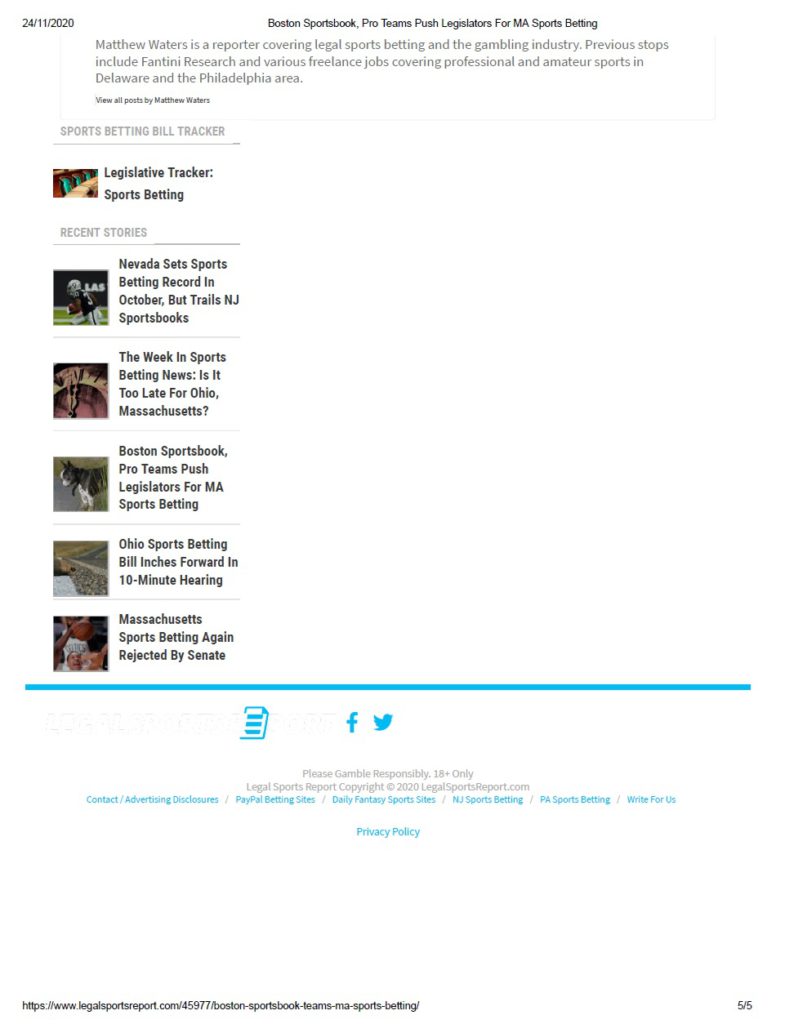
Boston-born DraftKings and others interested in MA sports betting aren’t ready to let the issue die this year.
Betting operators and interested sports entities sent a joint letter Friday to the Economic Development Conference Committee urging legislators to include sports betting in the bill.
The letter addressed how most of the heavy lifting to legalize Massachusetts sports betting has been done, leaving the final steps up to the legislature.
“To the extent that additional issues have been raised during this process, we believe the House and Senate should be able to work out remaining details rather than delaying action for months and months,” the letter said. “Now, it’s a simple matter of getting this over the goal line.”
The letter originally had six signatories:
- Andy Levinson, senior VP of PGA Tour
- Chris Kelley, COO of MGM Springfield
- Jason Robins, CEO of DraftKings
- Matt King, CEO of FanDuel
- Robyn Glaser, club counsel for New England Patriots and Revolution
- Sam Kennedy, CEO of Boston Red Sox
Charlie Jacobs of the NHL‘s Bruins and Rich Gotham of the NBA‘s Celtics later joined the push. That puts the support of the state’s five major sports teams behind the letter.
Letter addresses economics of MA sports betting
The letter hits multiple times at the heart of the issue for many legislators: tax revenue.
Legalizing sports betting would inject “an estimated $50 million in immediate revenues for the FY2021 budget.”
Interestingly, the letter does not address legal sports betting in New Hampshire and Rhode Island. Both of those states offer mobile sports betting and registration. That means a Massachusetts resident just needs a short trip over either border to place bets legally.
The letter does address the illegal offshore sports betting market, though. It cites an Oxford Economics study that estimates 1.4 million residents bet nearly $3.2 billion on sports illegally.
“The single most effective way to defeat the illegal market is to create a competitive, legal sports betting framework,” the letter said. “The signatories to this letter stand ready to invest heavily to ensure a legal market in Massachusetts will thrive.”
Where does legalization in Massachusetts stand?
The joint letter comes after a report that the Senate isn’t focused on sports betting right now. An amendment that would have added sports betting to the fiscal 2021 budget failed in the Senate earlier this week.
The Senate acted similarly over the summer, denying multiple amendments to include sports betting while crafting its version of the economic development bill.
After this week’s denial, Senate President Karen Spilka brushed off any urgency on sports betting legalization to the State House News Service:
“Right now, the focus is going to be on conference committees, resolving the budget, and COVID. We’ll see though.”
Spilka and House Speaker Robert DeLeo were both copied on the letter as well.
House is all for sports betting
The House, meanwhile, is clearly interested in getting sports betting legalized in the state.
The House version of the economic development bill included sports betting and passed by a decisive 156-3 vote.
The bill would have allowed seven sports betting licenses. Each of the three casinos, DraftKings Sportsbook, FanDuel Sportsbook and two other sportsbook operators would get licenses.
Other MA casinos want to control sports betting
Missing from Friday’s joint letter were representatives from Penn National and Wynn Resorts‘ casinos in the state.
That’s because the two already penned their own joint letter to the committee.
Leaders from the two casinos argued the three casino operators should be given three sports betting licenses each as a reward for their investment in Massachusetts:
“Those that make actual investments in Massachusetts, assume legitimate risk, and incur costs to provide a service or benefit in the Commonwealth should be enfranchised under this legislation. Conversely, automatic windfalls to industries or interests which assume no new costs, risks or obligations as a result of this type of expansion are not only harmful to the gaming industry’s interests but even more so to overall public interest.”
The proposal from Penn and Wynn also allows a license for DraftKings, which has its headquarters in Boston.






















